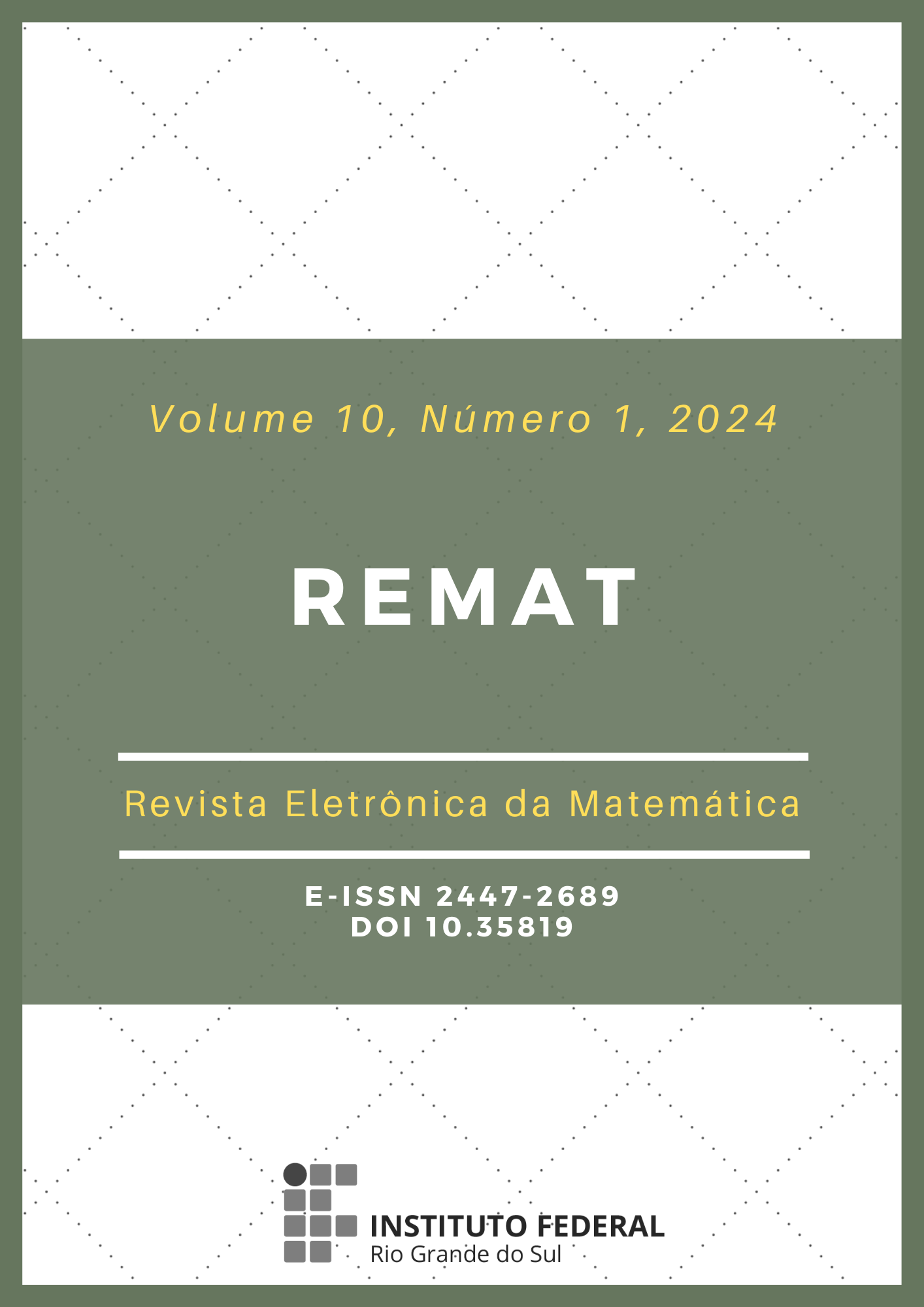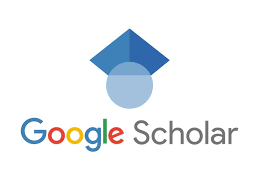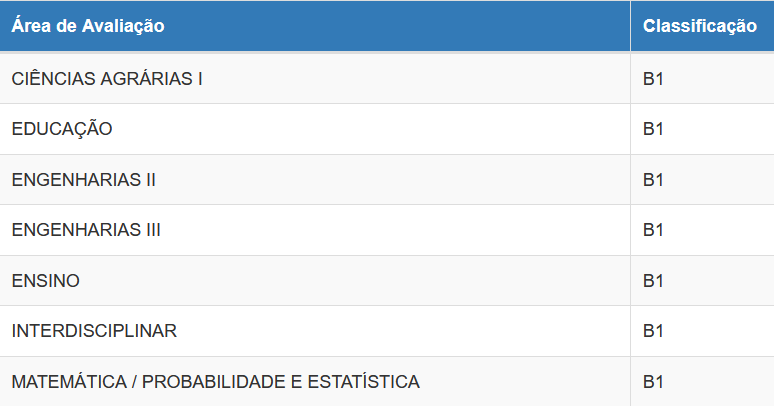Experiences with mathematical modeling and contributions to the training of a teacher
DOI:
https://doi.org/10.35819/remat2024v10i1id6768Keywords:
learning environment, teaching practice, mathematics education, mathematical modelingAbstract
Teacher training is a prominent theme in research in Mathematics Education. Considering this context, in this research we reflect on phases experienced by an undergraduate student in Mathematics with Mathematical Modeling, aiming at the contributions that were being consolidated in each experience lived for the formation of the future Mathematics teacher. This research of a qualitative, descriptive and interpretative nature has as question: what contributions does the experience with Mathematical Modeling in the initial formation bring to the formation of a teacher? To answer this question, we rely on the “theory of wholes and parts”. We interpret that the experiences of the first author, described in phases developed during the 4th year of the Degree in Mathematics at the State University of Paraná (UNESPAR), Paranavaí Campus, constitute a formative moment, but that the whole as formation remains in movement of constitution. As a result, the research shows the contributions that each phase had in this formative moment and how the process of deconstruction and reconstruction about being a teacher occurred in an active teaching perspective. In addition to this experience, we bring reflections on the importance of having experiences with Mathematical Modeling during academic training, envisioning the realization of practices in different educational environments.
Downloads
References
ALMEIDA, L. M. W.; SILVA, K. P.; VERTUAN, R. E. Modelagem matemática na educação básica. São Paulo: Contexto, 2013.
ALVES-MAZZOTTI, A. J. O método nas ciências sociais. In: ALVES-MAZZOTTI, A.J.; GEWANDSZNAJDER, F. O método nas ciências naturais e sociais: pesquisa quantitativa e qualitativa. 2. ed. São Paulo: Pioneira Thomson, 1998.
BARBOSA, J. C. Modelagem matemática: concepções e experiências de futuros professores. Orientador: Marcelo de Carvalho Borba. 2001. 253 f. Tese (Doutorado) ? Instituto de Geociências e Ciências Exatas, Universidade Estadual Paulista, Rio Claro, 2001a.
BARBOSA, J. C. Modelagem matemática e os professores: a questão da formação. Bolema, Rio Claro, v. 14, n. 15, 2001b, p. 5-23. Disponível em: https://www.periodicos.rc.biblioteca.unesp.br/index.php/bolema/article/view/10622. Acesso em: 21 mar. 2024.
BARBOSA, J. C. Modelagem Matemática: O que é? Por quê? Como? Veritati, n. 4, p.73-80, 2004.
FALLEIRO, B. C. A.; OLIVEIRA, W. P. Interesses de futuros professores em utilizar a modelagem matemática no estágio. In: ÁGORA MATEMÁTICA, 6., 2022, Campo Mourão. Anais [...]. Campo Mourão: Universidade Estadual do Paraná, Campus de Campo Mourão, 2022.
GARNICA, A. V. M. Algumas notas sobre pesquisa qualitativa e fenomenologia. Interface, Botucatu, v. 1, n. 1, p. 109-122, 1997. DOI: https://doi.org/10.1590/S1414-32831997000200008.
HUSSERL, E. Investigações Lógicas: Investigações para a Fenomenologia e a Teoria do Conhecimento. Tradução: Pedro M. S. Alves, Carlos Aurélio Morujão. Rio de Janeiro: Forence, 2012.
MALHEIROS, A. P. S. A modelagem matemática na formação inicial de professores: a mudança de postura de Alexandre. In: CONGRESSO NACIONAL DE FORMAÇÃO DE PROFESSORES, 2.; CONGRESSO ESTADUAL PAULISTA SOBRE FORMAÇÃO DE EDUCADORES, 12., 2011, Águas de Lindóia. Anais [...]. São Paulo: UNESP; PROGRAD, 2014. p. 1816-1828. Disponível em: http://hdl.handle.net/11449/141682. Acesso em: 21 mar. 2024.
MOURA, C. A. R. de. Crítica da Razão na Fenomenologia. São Paulo: Nova Stella, Editora da Universidade de São Paulo, 1989.
OLIVEIRA, A. M. P.; BARBOSA, J. C. A primeira experiência de modelagem matemática e a tensão do “próximo passo”. In: ENCONTRO NACIONAL DE EDUCAÇÃO MATEMÁTICA, 9., 2007, Belo Horizonte. Anais [...]. Recife: Sociedade Brasileira de Educação Matemática, 2007.
PASSOS, L. F. Universidade e Escolas: experiências de colaboração em processos de mudança na formação dos professores. Educação: Teoria e Prática, Rio Claro, v. 7, n. 12-13, p. 51-59, 1999. Disponível em: https://www.periodicos.rc.biblioteca.unesp.br/index.php/educacao/article/view/2356. Acesso em: 21 mar. 2024.
SANTOS, E. R. dos; SILVA, F. F.; SANTOS, A. H. dos. Familiarização dos alunos com modelagem matemática: uma experiência na licenciatura em Matemática. In: ENCONTRO NACIONAL DE EDUCAÇÃO MATEMÁTICA, 13., 2019, Cuiabá. Anais [...]. Cuiabá: SBEN, 2019.
SILVA, D. K. Ações da Modelagem para a formação inicial de professores de Matemática. In: BARBOSA, J. C.; CALDEIRA, A. D.; ARAÚJO, J. A. Modelagem Matemática na Educação Brasileira: pesquisas e práticas profissionais. Recife: SBEM, 2007.
SKOVSMOSE, O. Cenários para investigação. Bolema, Rio Claro, v. 13, n. 14, p. 66-91, 2000. Disponível em: https://www.periodicos.rc.biblioteca.unesp.br/index.php/bolema/article/view/10635. Acesso em: 21 mar. 2024.
SOKOLOWSKI, R. Introdução à Fenomenologia. São Paulo: Loyola, 2010.
Downloads
Published
How to Cite
Issue
Section
License
Copyright (c) 2024 REMAT: Revista Eletrônica da Matemática

This work is licensed under a Creative Commons Attribution 4.0 International License.
REMAT retains the copyright of published articles, having the right to first publication of the work, mention of first publication in the journal in other published media and distribution of parts or of the work as a whole in order to promote the magazine.
This is an open access journal, which means that all content is available free of charge, at no cost to the user or his institution. Users are permitted to read, download, copy, distribute, print, search or link the full texts of the articles, or use them for any other legal purpose, without requesting prior permission from the magazine or the author. This statement is in accordance with the BOAI definition of open access.

































